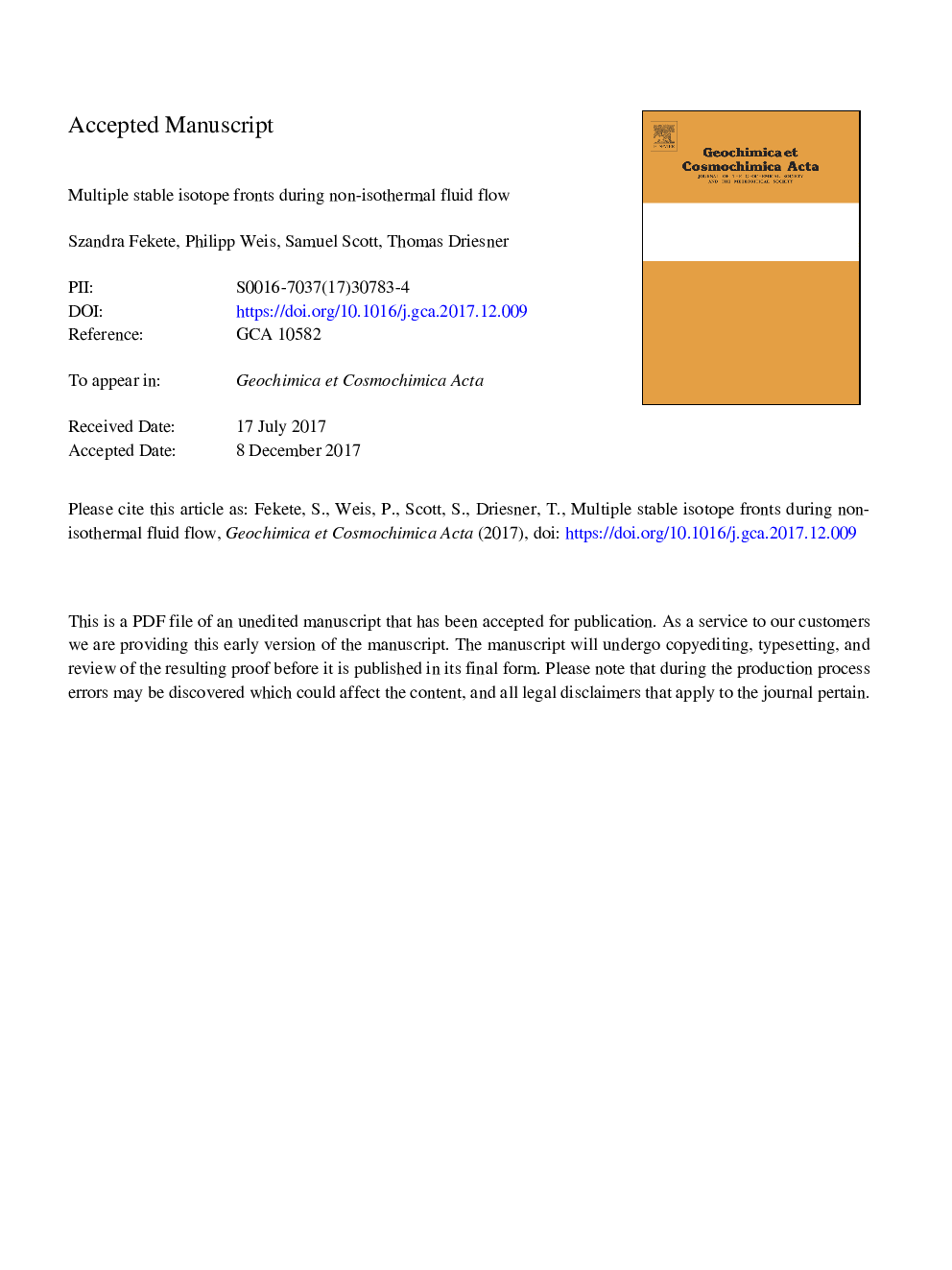| Article ID | Journal | Published Year | Pages | File Type |
|---|---|---|---|---|
| 8910923 | Geochimica et Cosmochimica Acta | 2018 | 68 Pages |
Abstract
If isotope exchange between fluid and mineral is fast, a previously unrecognized, significant enrichment in heavy oxygen isotopes of fluids and minerals occurs at the thermal front. The maximum enrichment depends on the initial isotopic composition of fluid and mineral, the fluid-rock ratio and the maximum change in temperature, but is independent of the isotopic composition of the incoming fluid. This thermally induced isotope front propagates faster than the signal related to the initial isotopic composition of the incoming fluid, which forms a trailing front behind the zone of transient heavy oxygen isotope enrichment. Temperature-dependent kinetic rates of isotope exchange between fluid and rock strongly influence the degree of enrichment at the thermal front. In systems where initial isotope values of fluids and rocks are far from equilibrium and isotope fractionation is controlled by kinetics, the temperature increase accelerates the approach of the fluid to equilibrium conditions with the host rock. Consequently, the increase at the thermal front can be less dominant and can even generate fluid values below the initial isotopic composition of the input fluid. As kinetics limit the degree of isotope exchange, a third front may develop in kinetically limited systems, which propagates with the advection speed of the incoming fluid and is, therefore, traveling fastest. The results show that oxygen isotope signatures at thermal fronts recorded in rocks and veins that experienced isotope exchange with fluids can easily be misinterpreted, namely if bulk analytical techniques are applied. However, stable isotope microanalysis on precipitated minerals may - if later isotope exchange is kinetically limited - provide a valuable archive of the transient thermal and hydrological evolution of a system.
Related Topics
Physical Sciences and Engineering
Earth and Planetary Sciences
Geochemistry and Petrology
Authors
Szandra Fekete, Philipp Weis, Samuel Scott, Thomas Driesner,
